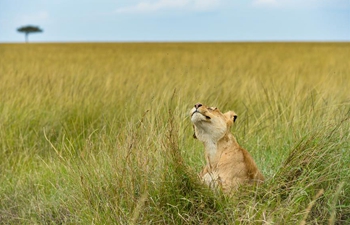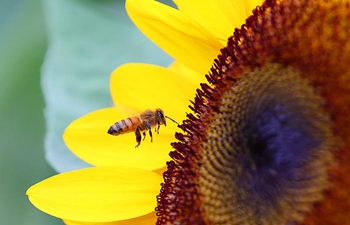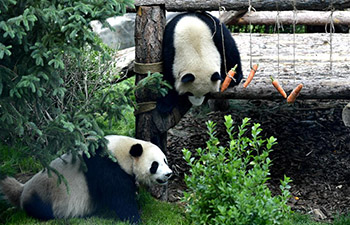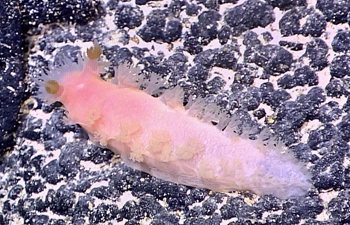CHICAGO, June 20 (Xinhua) -- Having analyzed 20 years of data collected by expert botanists from hundreds of randomly selected sites in U.S. state of Illinois, researchers from the University of Illinois (UI) and the U.S. Geological Survey found that dominant non-native plants reduce wetland biodiversity and abundance more than native plants do.
Tracking changes in the variety and abundance of different plants in the same locations over time, the researchers found that the dominant non-natives are not just choking out many other plants. They also have a broad ecological footprint, taking over wetlands on a regional level, rather than just in individual sites. This negatively affects populations of birds and insects that rely on the native wetlands.
"The more dominant they are, the less room is available for other species," said plant ecologist and botanist Greg Spyreas with the Illinois Natural History Survey (INHS), a division of the Prairie Research Institute at UI. "They outcompete better. And that's across hundreds of sites."
For example, a European cultivar of reed canary grass has taken hold in many parts of North America. It grows extremely fast, reduces the light available to other plants, produces enormous numbers of seeds and sends out underground stems to quickly colonize a site.
"It creates this very thick thatch of dead material on the ground that other plants can't penetrate," Spyreas said. "It tolerates drought and flooding very well, whereas a lot of native plants cannot."
But not all non-native plants reduce the ecological richness of wetlands, INHS plant ecologist David Zaya said.
"There are non-natives that sit in the background and don't affect the wetland community," said Zaya. "Also, many native plants will dominate wetland communities."
While some researchers have hypothesized that a dominant plant can drive down the diversity and abundance of other species, no matter it is native or non-native, the study showed that dominant, non-native species are much more likely to radically diminish the biological diversity of a locale than their native counterparts will.
"When I see native- versus non-native-dominated wetlands, it looks like two totally different worlds," Zaya said. "Each native wetland has its own personality, with a different little flower or forb or rare grass or sedge. No two are the same. But the non-native wetlands tend to look alike. They're the same here as they are in Ohio."
The data also offer insights into how to best maintain wetland diversity.
"If you have a massive database of wetland plants like we do in Illinois, if you look at the numbers, you can isolate the species that are the most problematic," Spyreas said.
The study, posted on UI's website on Wednesday, has been published in the journal Ecology Letters.













